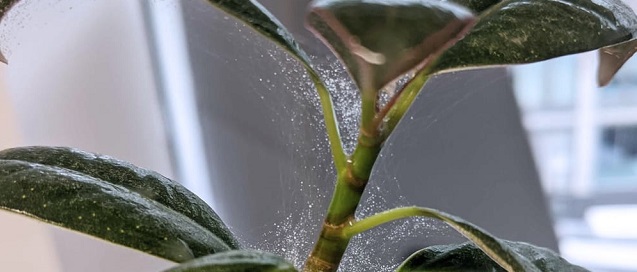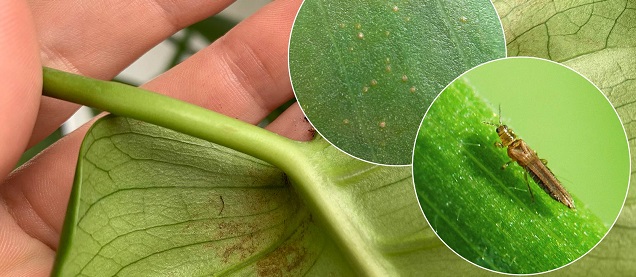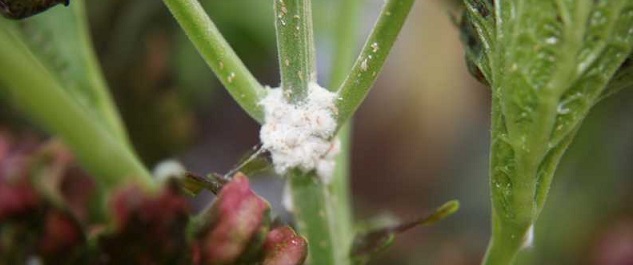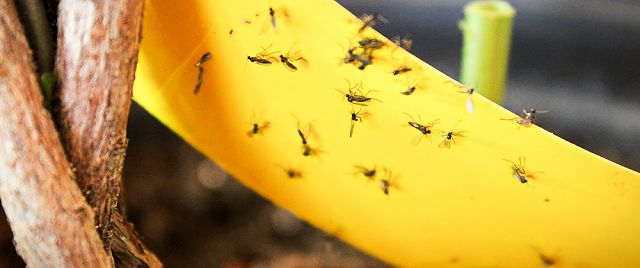
Introduction:
In the tapestry of spring, where every petal tells a story and every leaf whispers secrets of growth, there exists a delicate balance between beauty and the lurking menace of pests. As the earth awakens from its slumber and gardens burst forth in a riot of colors, it's essential for every gardener to be armed not just with pruning shears and watering cans, but also with knowledge and strategies to fend off these tiny adversaries. Join me as we embark on a journey through the verdant landscape, discovering how to spot and treat pests this spring season, ensuring our gardens remain havens of tranquility and growth.

Spider Mites:
Identification: These stealthy arachnids leave behind fine webbing on the undersides of leaves and tiny specks resembling dust, indicative of their presence.
Treatment: Employ natural predators like ladybugs or lacewings, or use neem oil to disrupt their life cycle. Consider using a variety of organic solutions such as insecticidal soap or horticultural oil.

Thrips:
Identification: Look for silvery streaks and distorted growth, along with tiny, darting specks, indicating the presence of these slender, winged insects.
Treatment: Combat thrips with insecticidal soap or horticultural oil. Regular pruning of infested plant parts is also beneficial. Explore various natural remedies, including introducing predatory insects or utilizing homemade insecticidal sprays.
Read here for more tips on thrips!

Mealybugs:
Identification: Mealybugs cluster on stems and leaf joints, leaving behind cottony nests and sticky honeydew residue.
Treatment: Remove mealybugs manually with rubbing alcohol or diluted dish soap, or introduce natural predators like ladybugs. Explore alternative methods such as using a stream of water to dislodge mealybugs from plants.

Scale:
Identification: Look for small, waxy bumps resembling scales on stems and leaves, indicative of scale insect infestation.
Treatment: Scrub scale insects with soapy water or apply horticultural oil to suffocate and disrupt their protective coatings. Consider using organic pesticides such as neem oil or insecticidal soap as part of an integrated pest management approach.

Fungus Gnats:
Identification: Fungus gnats are more annoying than they are harmful, and are often found when the soil is kept too damp. Watch for adult gnats hovering around plants and inspect soil for small, white larvae, indicative of fungus gnat infestation.
Treatment: Allow soil to dry out between waterings and apply diatomaceous earth to the soil surface to kill larvae. Consider using biological control methods such as introducing predatory nematodes or bacteria to target fungus gnat larvae.
Treating Pests:
Explore Organic Solutions: While Bios Diatomaceous Earth is a popular option for pest control, there are numerous organic solutions available in the market. Consider exploring products such as organic insecticidal sprays, beneficial nematodes, or botanical oils to effectively manage pest infestations.
Enhance Plant Health: In addition to pest control measures, focus on enhancing overall plant health to reduce susceptibility to pests. Incorporate organic fertilizers, compost, and soil amendments to promote vigorous plant growth and resilience against pest attacks.
Integrated Pest Management (IPM): Implement an integrated pest management approach by combining cultural, biological, and mechanical control methods. Regularly monitor plants for signs of pest activity, encourage natural predators, and practice good sanitation to minimize pest populations.
Customer Testimonials: Hear from other gardeners about their experiences with pest control products. Read customer reviews and testimonials to gain insights into the effectiveness of various treatments and make informed decisions about pest management strategies.
Embrace the arrival of spring with confidence, equipped with the knowledge and tools to safeguard your garden against the onslaught of pests. With vigilance, patience, and a diverse array of pest control strategies at your disposal, you can nurture your green oasis into a thriving sanctuary of beauty and abundance. Happy gardening!



